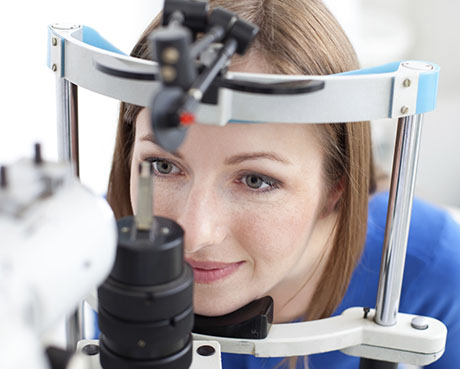Our Services
Technology
We provide the latest in technology as our standard for eye care. Any combination of these painless, non-invasive ways of viewing valuable information about your eyes allows our doctors to detect changes in the health of your eyes to keep you seeing and feeling your best.
- High Resolution Digital Retinal Photos
- 3-D Retina and Optic Nerve Scans (OCT)
- Modern, up to date methods of checking eye pressures – Never again worry about the dreaded air puff test!
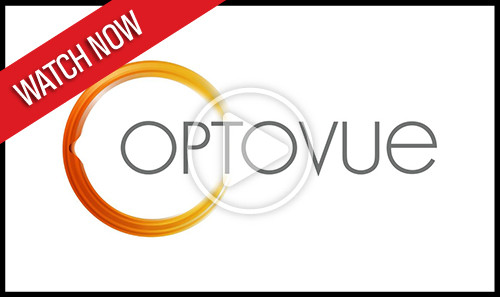
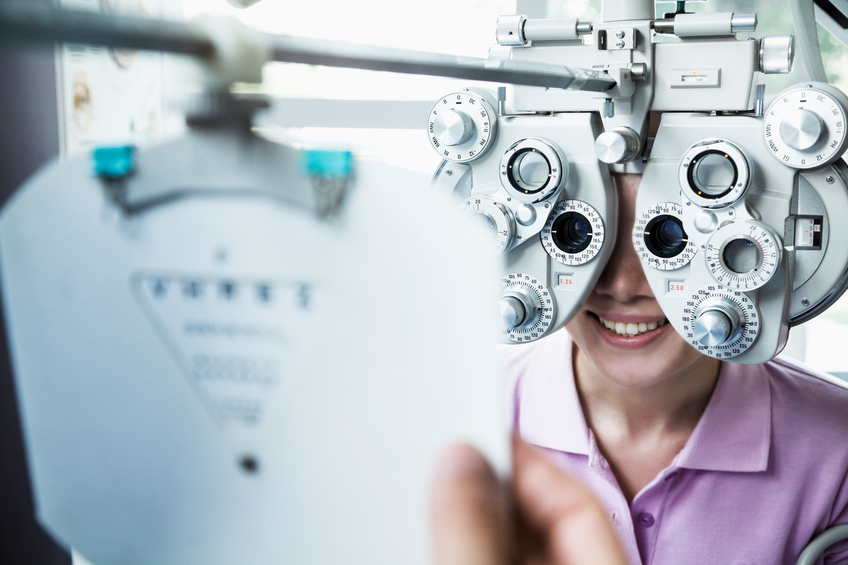
As a fully licensed and equipped optometric practice, Ephrata Family EyeCare, LLP offers a complete range of eye care services to all our patients.
Whether the eye care issue involves correcting refractive errors with eyeglass or contact lenses, helping a student find amazing frames, or diagnosing/treating eye conditions and diseases, our experienced team will identify and implement the best eye care solutions for you.
Eye Health Evaluation
With our years of experience in diagnosing and treating typical vision disorders such as nearsightedness, farsightedness, amblyopia, presbyopia, cataracts, macular degeneration, and diabetic retinopathy, Ronald J Bensing, OD, and Keith F Shuke, OD, and their team are equipped to provide appropriate therapeutic medical eye care.
At the same time, the Ephrata Family EyeCare, LLP team offers a wide array of high-quality eye care products at reasonable prices. Our patients never pay too much for the best quality in eyeglasses, contact lenses, sunglasses, progressive and bifocal lenses, and outstanding service.
Treatment of Eye Disease
If you are diagnosed with an eye disease, you want the best treatment available to get your eyes healthy again. At Ephrata Family EyeCare, LLP, we stay current with best treatment practices. Based on your diagnosis, we may recommend a wide variety of approaches, including improved nutrition, prescription medicines, therapy and vision exercises, or medical procedures.
Good Eye Care Begins With A Yearly Eye Exam!
Although many do not realize it, the best way to protect your vision is with a yearly eye checkup. Even a basic eye exam can instantly detect many health-threatening conditions, such as tumors, vascular irregularities, and diabetes-related injury to the retina. At Ephrata Family EyeCare, LLP, that basic checkup is brief and painless.
Vision Correction & Options
At Ephrata Family EyeCare, LLP, your vision is our primary concern. We offer vision correction for eye diseases and disorders which prevent you from enjoying the world around you. We specialize in treatment of eye diseases such as dry eye, macular degeneration, glaucoma, and cataracts. We also can effectively correct vision conditions, such as myopia (near-sightedness), hyperopia (far-sightedness), and presbyopia.
Our vision correction services aren't just about clear vision - they're about healthier vision. That's why we offer a variety of treatment options, including glasses, contact lenses, and therapeutic nutraceuticals.
We are happy to provide you with some basic information about various vision correction options that are available at our practice. Select from the following list or scroll down the page to learn more.
For more information, please call or email our office.
| Child Vision and Learning | Low Vision | Sports Vision |
Child Vision and Learning
 Did you know that 80% of everything a child learns, understands, and remembers is acquired through his or her visual system? Vision is very important in the learning process. What's worse is that one in four children have undiagnosed vision problems that affect their learning. Sometimes the problem is misdiagnosed as ADD (attention deficit disorder), ADHD (attention deficit hyperactivity disorder), or dyslexia.
Did you know that 80% of everything a child learns, understands, and remembers is acquired through his or her visual system? Vision is very important in the learning process. What's worse is that one in four children have undiagnosed vision problems that affect their learning. Sometimes the problem is misdiagnosed as ADD (attention deficit disorder), ADHD (attention deficit hyperactivity disorder), or dyslexia.
It is important that children receive comprehensive visual exams starting as early in life as possible. Vision screenings at school are not sufficient as a basis for diagnosing vision problems. A comprehensive exam may find a visual problem missed during screenings, and your eye doctor can recommend treatment.
Your child may suffer from a visual problem if they exhibit any of the following characteristics:
- struggles with reading
- grows tired or frustrated with reading
- can't sit still or stay at a task for any length of time
- reverses words, numbers, or letters
- has difficulty remembering the spelling of words
- frequently loses their place, skips words, or skips lines of text while reading
- has poor reading comprehension
- has shown no improvement from medication or tutoring
Children suffering from uncorrected vision problems may face many barriers in life - socially, academically, and athletically. Make sure your child's vision is developing well.
Low Vision
Low vision is a vision condition caused by several eye diseases, including cataracts, macular degeneration, and diabetic retinopathy. Few people today are totally without sight. Most have some sight, and suffer from low vision. Low vision can come in many forms, including loss of central vision, loss of side vision, blurred vision, generalized haze, extreme sensitivity to light, and night blindness.
Low vision should only be treated by trained optometrists who specialize in low vision. Low vision often requires different therapeutic treatments than other vision conditions. Optometrists who specialize in low vision can examine the patient and recommend treatment which may include therapy and/or low vision devices.
For more information, please ask your doctor.
Sports Vision
"Keep your eye on the ball!" "Focus on the finish line!" "Don't lose sight of the green!" If there's one thing that seems to be a key to success in sports, it's vision. But did you know you can improve your performance by improving some aspects of your vision? It's easy to recognize problems, and even easier to solve them. The following are some aspects of vision which can be the difference between victory and defeat, and some exercises to improve performance.
Dynamic visual acuity is your ability to see objects when they are moving fast. This is important in sports like hockey, racquetball, and tennis. To improve dynamic visual acuity, cut out letters, stick them to a record turntable, and try to identify the letters at different speeds.
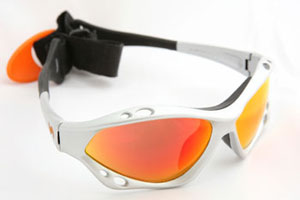 Visual concentration is your ability to ignore distractions happening around you. Your eyes naturally react to movement in the field of vision from spectators, other participants or the playing environment. To improve your visual concentration, have a friend stand nearby and wave their hands erratically while you practice.
Visual concentration is your ability to ignore distractions happening around you. Your eyes naturally react to movement in the field of vision from spectators, other participants or the playing environment. To improve your visual concentration, have a friend stand nearby and wave their hands erratically while you practice.
Eye tracking is following an object with your eyes without much head motion. It is important with any sport that involves a fast-moving ball. Good eye tracking will improve balance and reaction time. You can improve your eye tracking by watching the flight of a ball while keeping a book balanced on your head.
Eye-hand-body coordination is how your muscles and limbs react to the information gathered by your eyes. It affects timing and body control. To improve your eye-hand-body coordination, jump up and down on an old mattress while a friend tosses you a tennis ball from a variety of angles. Catch the ball and toss it back.
Visual memory is the ability to process and remember a fast moving, complex picture of people and things. It is very important in basketball, hockey, and soccer, where the game quickly moves up the field. Visual memory helps you know where your teammates and opponents are positioned. To improve visual memory, look at a magazine page for a second, then turn the page. Try to reconstruct the images you just saw. When you?ve mastered the exercise, allow 5 seconds between seeing the image and reconstructing it.
Peripheral vision is the ability to see what is not directly in front of you, out of the corner of your eye. This allows you to see your teammate to your left or right while focusing on the goal in front of you. To make your peripheral vision more useful, try watching television with your head turned to one side or the other.
Visual reaction time is what allows a batter to hit the ball, or a tennis player to return a serve. It is the speed with which your brain interprets and reacts. To improve your visual reaction time, stand with your back to a friend. Have them toss a ball to you and yell, "Now!" When you hear the yell, turn around and try to catch the ball. By repeating this exercise, you can teach your brain to react more quickly.
Focus flexibility allows a quarterback to quickly focus on his receivers even though they are at varying distances. To improve focus flexibility, post a magazine page on a wall about 15 feet away at eye level in front of you. Hold a similar page in your hand out in front of you, so that it is slightly to one side of your view of the page on the wall. Focus on an object or words on the page on the wall. Then quickly switch focus to the page in your hand. By switching focus back and forth, you will improve your focus flexibility.
Depth perception lets you judge distance. This is especially important in basketball, golf, and other sports involving distance to the goal. To improve depth perception, have a friend point a straw at you, parallel to the ground, with the straw about two feet away from you. Practice quickly inserting a toothpick into the straw.
By improving aspects of your vision, you can improve your performance, no matter what sport you're involved in.
Eye Health Evaluation
Our eye health evaluations are more than just vision correction!
Did you know that your eyes reveal insights regarding your overall health? In fact, your eyes provide early detection for many different diseases that can affect more than just your vision! That's why we routinely perform tests that look for signs and symptoms of many different diseases, not just eye diseases, during your regularly scheduled eye health evaluation.
Illnesses that may be discovered early on through signs in your eyes include high blood pressure, diabetes, and even heart disease. That's why eye care is a high priority for annual health evaluations. We feel it's important to review your family history, then monitor for signs of possibly inherited diseases or illnesses as another precaution.
Here's what we are checking during your annual eye health evaluation:
Of course we are always checking your eyesight to ensure proper vision. Your total eye health is extremely important to us and we do everything we can to make sure you receive the best personalized care possible. Did you know that the curve of your cornea determines how the light reflects into your retina and the type of image produced? We measure your cornea, record your vision then consult and recommend the best options available to you with all the latest technology!
We check for Glaucoma, a disease where high levels of pressure inside of your eye are present when your eyes fail to regulate internal pressure. Early detection of glaucoma is crucial to prevent loss of sight.
We watch for cataracts, when the internal lens of your eye becomes cloudy and necessitates replacement.
Do you know what binocular vision is? It's when each of your eyes forms its own image and transfers these images to the brain. The brain fuses these two images into one. In order for this to occur, your eyes must move together, be aligned, and produce the same size and shape image. When this doesn't happen it's difficult to see clearly and usually causes strain and headaches. We also conduct a series of tests to assess the ability of your eye muscles to make sure that both eyes are working as a team!
Our eye evaluations are the best you can find!
While so many bargain eye care providers are interested only in volume and getting the next patient in the chair, we put quality above all else. We want to make sure your eyes and your vision are healthy. That's why we offer comprehensive eye health evaluations and necessary follow-up care.
For more information, please call or email.
Contact Lens Evaluation
Few things affect the quality of your life more than your eyes. Don't put them at risk! Start off right by seeing an eyecare professional who provides full-service care in assessing your medical needs, your lifestyle, and the highest quality contact lenses available.
It is important to remember that contact lenses are prescription medical devices. The selection of a particular contact lens needs to be based on your vision problems, prescription, eye health, comfort requirements, lifestyle, age and physiological factors like tear flow. We'll discuss the different lens types and brands with you and advise you about the lens choices that are best for your eyes. Because everyone's eyes and vision needs are different, contact lenses are available in varying materials and replacement schedules. We'll teach you how to properly clean and wear your new contact lenses to maximize vision and minimize potential risks.
At Ephrata Family EyeCare, LLP we make sure that vision correction not only helps you see better, but also helps you feel better. That's why we offer contact lens evaluations. Contact lenses aren't right for everyone, but they may be right for you. Even if you have astigmatism, need bifocal lenses, or have been told in the past that you can't wear contact lenses, we may have a solution!
Your evaluation will include:
- A look at your vision history
- An examination of your corneas
- A consultation session with your doctor, including recommendations and options
Call or email us today for a contact lens evaluation. Enjoy the freedom contact lenses provide!
Treatment of Eye Disease
If you are diagnosed with an eye disease, you want only the best treatment available to get your eyes and your vision healthy again. At Ephrata Family EyeCare, LLP, we offer only the best. Based on your diagnosis, we may recommend a wide variety of approaches, including prescription medicines, therapy, or medical procedures. Whatever we recommend, you can be assured that your vision health is our primary concern.
Our Services
At Ephrata Family EyeCare, LLP, we truly care about the health of your eyes. Dr. Ronald Bensing, Dr. Keith Shuke and their team are dedicated to providing a comprehensive eye health and vision examination which may include the following:
- Thorough Case History
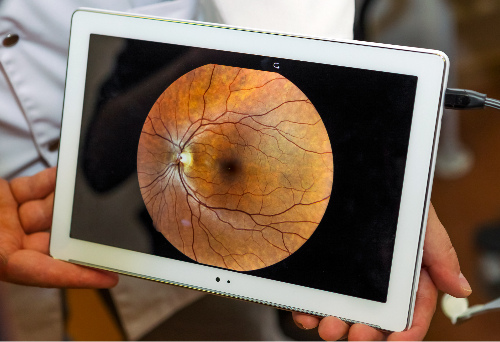
- Blood Pressure Screening
- Visual Acuity Testing
- Depth Perception Testing
- Color Vision Testing
- Internal Eye Health Evaluation
- External Eye Health Evaluation
- Eyelid Health Evaluation
- Contact Lens Fitting
- Visual Field Testing
- High Resolution Digital Retinal Photos
- 3-D Retina and Optic Nerve Scans (OCT)
- Dry Eye Evaluation and Treatment
- Glaucoma Testing and Treatment
- Cataract Evaluation
Eye Health Evaluation
With our years of experience in diagnosing and treating typical vision disorders such as nearsightedness, farsightedness, amblyopia, presbyopia, cataracts, macular degeneration and diabetic retinopathy, we are equipped to provide appropriate therapeutic medical eye care.
At the same time, the Ephrata Family EyeCare team offers a wide array of the very best high quality eye care products at reasonable prices. Our patients never pay too much for the best quality in eyeglasses, contact lenses, sunglasses, progressive and bifocal lenses, and outstanding service.
Treatment of Eye Disease
If you are diagnosed with an eye disease, you want only the best treatment available to get your eyes healthy again. At Ephrata Family EyeCare, we offer only the best. Based on your diagnosis, we may recommend a wide variety of approaches, including improved nutrition, prescription medicines, therapy, or medical procedures.

Good Eyecare Begins With A Yearly Eye Exam!
The best way to protect your vision is with a yearly eye checkup. Even a basic eye exam can instantly detect such health-threatening conditions as tumors, vascular irregularities, and diabetes-related injury to the retina. At Ephrata Family EyeCare, that basic checkup is brief and painless.
Please Note - Patients are responsible for payment of services rendered. We will bill medical insurance for covered medical services. Our staff is knowledgeable about insurance and is available to answer your questions.

